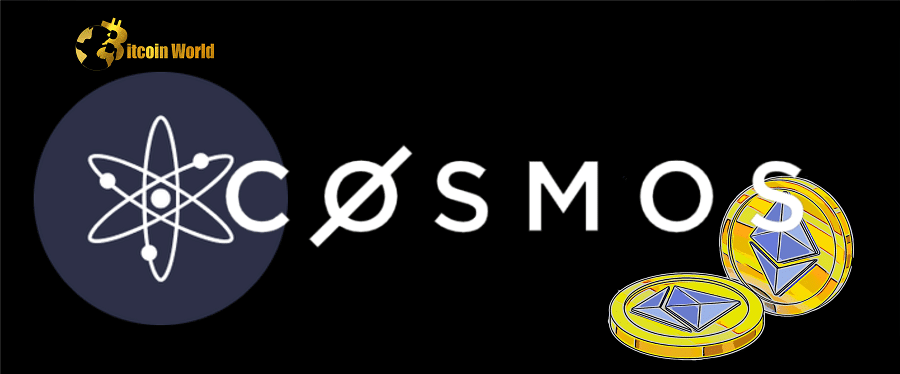Cosmos (ATOM), one of the cryptocurrencies dubbed an “Ethereum killer,” was created to address the issues of slowness, high transfer rates, and environmentally hazardous blockchains.
Furthermore, cryptocurrency aims to reduce the complexity and difficulty of blockchain technology for developers. As a result, it has a modular structure that simplifies the use of decentralized applications.
Cosmos SDK, an open-source framework for building multi-asset public proof-of-stake (PoS) blockchains like the Cosmos Hub, as well as permission proof-of-authority (PoA) blockchains, enables this.
Of course, one of Cosmos’ most notable advantages is its interoperability function. It is also among the assets working on a cross-blockchain conversation to facilitate communication between the networks of various cryptocurrencies, such as Polkadot (DOT).
Cosmos focuses on interoperability, which makes it a direct competitor to Polkadot, a platform that also works at the intersection of different cryptocurrency networks. Cosmos, like its competitor, allows for the creation of customized protocols for various protocols.
One distinction between the two cryptocurrencies is that Cosmos aims for blockchain communication and adoption rather than security between blockchains, as Polkadot does.
This means that Cosmos projects can communicate with one another. Each project, however, has its own security layer. Custom blockchains on the DOT network, on the other hand, are reliant on Polkadot’s central security.
As can be seen, while both networks intend to allow interoperability between blockchains, their approaches differ. Interaction between networks on Polkadot is accomplished via parachains, whereas the interaction between networks on Cosmos is accomplished via a hub approach.
Cosmos, like Polkadot, requires a stronger community, despite its network’s excellent value proposition. Cosmos continues to have few real-world applications because it does not focus on bringing more people to work on its blockchain or on free marketing.
Another major issue is that the crypto has a staking process that punishes bad validators with total destruction.
Although this is a mechanism that encourages good network behavior, it may be extremely harmful to the investor who has delegated his or her tokens; when another delegator misbehaves, the delegate who has nothing to do with the misbehavior is also punished.
Cosmos’ rivalry with other Ethereum (ETH) competitors should not be overlooked. This could benefit the altcoin in terms of market growth.
By being in the top 30, the altcoin proves that with deliveries and a stronger community, it can reach a larger market capitalization, just like Polkadot and Solana (SOL).
However, becoming one of the most acclaimed “Ethereum killers” is long overdue for the cryptocurrency.














